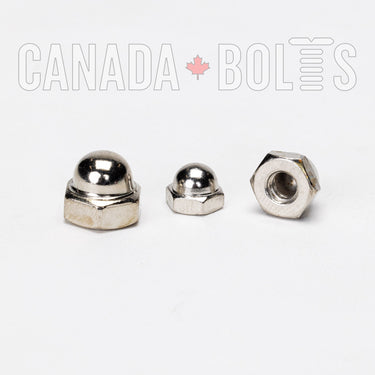Nickel is a silvery-white metal known for its excellent corrosion resistance, high ductility, and ability to withstand extreme temperatures. Pure nickel fasteners are relatively rare because nickel is often alloyed with other metals to enhance specific properties. However, nickel is widely used in the fastener industry as a coating material due to its advantageous characteristics.
Key Properties of Nickel:
- Corrosion Resistance: Nickel naturally forms a protective oxide layer on its surface, making it resistant to oxidation and corrosion, particularly in alkaline environments.
- Ductility and Toughness: Nickel maintains its strength and toughness over a wide temperature range, making it suitable for use in both high and low-temperature environments.
- Magnetism: Nickel is ferromagnetic, meaning it can be magnetized, which can be a consideration in specific applications.
Applications of Pure Nickel Fasteners: Pure nickel fasteners are used in highly specialized industries, such as aerospace, chemical processing, and power generation, where high-temperature resistance and corrosion resistance are critical.
Nickel-Plated Fasteners:
Nickel-plated fasteners are standard fasteners, typically made from steel or brass, that have been coated with a thin layer of nickel. This nickel coating enhances the fastener's appearance and provides additional corrosion resistance and durability.
Key Benefits of Nickel-Plated Fasteners:
- Enhanced Corrosion Resistance: The nickel coating acts as a protective barrier, preventing the underlying metal from corroding, especially in moist or humid environments.
- Aesthetic Appeal: Nickel plating provides a bright, shiny, and smooth finish, making these fasteners ideal for applications where appearance is important, such as in decorative hardware or consumer products.
- Durability: The hard nickel coating increases the surface hardness of the fastener, improving its wear resistance and extending its lifespan.
- Electrical Conductivity: Nickel has good electrical conductivity, which can be beneficial in applications where electrical contact is necessary.
Common Applications of Nickel-Plated Fasteners:
- Automotive Industry: Used in trim and interior components where a combination of appearance and corrosion resistance is needed.
- Electronics: Employed in connectors and other components where electrical conductivity and corrosion resistance are important.
- Plumbing Fixtures: Ideal for use in environments exposed to water, such as bathroom and kitchen fixtures, due to their corrosion resistance and shiny appearance.
- Furniture and Decorative Hardware: Often used in furniture assembly and decorative hardware due to their attractive finish and durability.
Nickel and nickel-plated fasteners offer a combination of corrosion resistance, durability, and aesthetic appeal, making them a versatile choice for various applications. Whether you need a fastener that can withstand harsh environments or one that adds a touch of shine to your project, nickel-plated fasteners are an excellent option. When choosing these fasteners, consider the specific requirements of your application, including the environment, aesthetic considerations, and any electrical conductivity needs.



